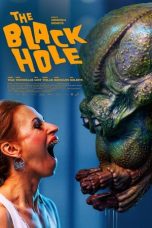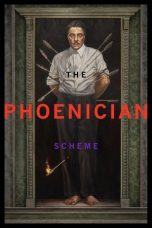School for Scoundrels (2006) Movie Review
School for Scoundrels (2006) is a comedy film that delves into the hilariously chaotic world of self-improvement and confidence-building. Directed by Todd Phillips, this movie stars Billy Bob Thornton and Jon Heder in a tale that combines humor, life lessons, and the unpredictable antics of an unconventional teacher-student relationship. Let’s explore the elements that make “School for Scoundrels” a notable comedy of its time.
Introduction
In a world filled with self-help gurus and motivational speakers, “School for Scoundrels” offers a comedic take on the journey to self-improvement. The film, a loose remake of the 1960 British comedy of the same name, shifts the setting to modern-day New York and introduces a down-on-his-luck protagonist seeking to transform his life. With its blend of slapstick humor and sharp wit, the movie aims to entertain while providing a satirical look at the self-help industry. Available on various streaming platforms, “School for Scoundrels” invites viewers to laugh along with its quirky characters and their misadventures.
Plot and Setting
The story follows Roger Waddell (Jon Heder), a shy and insecure meter maid struggling with low self-esteem and unrequited love for his neighbor, Amanda (Jacinda Barrett). Desperate to gain confidence and win Amanda’s affection, Roger enrolls in a mysterious self-help class taught by the charismatic and ruthless Dr. P (Billy Bob Thornton). The class, which promises to turn wimps into winners, involves unconventional and often brutal methods of boosting confidence. As Roger starts to transform, he finds himself in a competitive rivalry with Dr. P, who also sets his sights on Amanda. The film’s New York City setting provides a vibrant and bustling backdrop to the unfolding comedic drama.
Character Dynamics
The chemistry between Jon Heder and Billy Bob Thornton drives much of the film’s humor. Heder, known for his role in “Napoleon Dynamite,” brings a relatable awkwardness to Roger, making his journey of self-discovery both endearing and amusing. Thornton’s Dr. P is a masterclass in comedic antagonism, with his blend of charm and cruelty creating a character you love to hate. The supporting cast, including Michael Clarke Duncan as Dr. P’s intimidating assistant Lesher, and Sarah Silverman as Roger’s sarcastic co-worker, enhance the film’s comedic appeal. Jacinda Barrett’s Amanda adds a touch of sincerity amidst the chaos, grounding the film with a genuine romantic subplot.
Cinematic Techniques
Director Todd Phillips, known for his work on comedies like “Old School” and “The Hangover,” employs his signature style of blending outrageous humor with character-driven storytelling. The film’s pacing keeps the audience engaged, with a mix of rapid-fire jokes and slower, more reflective moments. The cinematography captures the energy of New York City, while the editing ensures that the comedic timing hits the mark. The soundtrack, featuring a mix of upbeat tracks and humorous scores, complements the film’s lighthearted tone.
Themes and Symbolism
“School for Scoundrels” explores themes of self-improvement, competition, and the true nature of confidence. Roger’s journey reflects the universal struggle to overcome personal insecurities and find inner strength. The film satirizes the self-help industry, highlighting the absurdity of quick-fix solutions and the often predatory nature of those who exploit others’ vulnerabilities. At its core, the movie emphasizes the importance of authenticity and genuine self-belief, rather than relying on external validation.
Available Streaming Services
For viewers in America, “School for Scoundrels” is available on several streaming platforms. You can stream it on services like Amazon Prime Video and Hulu with a subscription. It’s also available for rental or purchase on platforms such as iTunes, Google Play, and Vudu. This accessibility ensures that comedy fans can easily enjoy this entertaining film.
Comparisons to Other Todd Phillips Films
“School for Scoundrels” fits well within Todd Phillips’ filmography, particularly his early comedies. While it may not have achieved the same level of acclaim as “The Hangover,” it shares the director’s knack for combining humor with character development. Compared to his more recent works, “School for Scoundrels” leans more towards traditional comedy, lacking the darker undertones seen in films like “Joker.” However, it remains a testament to Phillips’ ability to create engaging and humorous narratives.
Critical Reception
“School for Scoundrels” received mixed reviews from critics. Some praised the performances of Heder and Thornton, as well as the film’s humorous take on self-help culture. Others criticized its predictable plot and reliance on familiar comedic tropes. Despite the divided opinions, the film has found an audience that appreciates its lighthearted approach and memorable characters.
Conclusion
“School for Scoundrels” (2006) is a fun and entertaining comedy that offers a humorous perspective on the quest for self-improvement. With strong performances from its lead actors, particularly Jon Heder and Billy Bob Thornton, the film delivers laughs and a few heartfelt moments. While it may not be the most groundbreaking comedy, it provides an enjoyable watch for those looking for a light and amusing film. For fans of Todd Phillips’ work and those interested in a comedic take on self-help, “School for Scoundrels” is worth a view.
FAQs
Is “School for Scoundrels” suitable for all audiences?
The film is rated PG-13 and contains some mature humor and language, making it suitable for teens and older audiences.
Where can I stream “School for Scoundrels”?
The film is available on streaming platforms such as Amazon Prime Video and Hulu. It can also be rented or purchased on iTunes, Google Play, and Vudu.
Who stars in “School for Scoundrels”?
The film features Jon Heder as Roger Waddell, Billy Bob Thornton as Dr. P, and Jacinda Barrett as Amanda, with supporting roles by Michael Clarke Duncan and Sarah Silverman.
What themes does “School for Scoundrels” explore?
The film explores themes of self-improvement, confidence, competition, and the satire of the self-help industry.
How does “School for Scoundrels” compare to other Todd Phillips films?
While it may not have the same level of acclaim as some of Phillips’ other works, it fits well within his early comedic style, focusing on character-driven humor and relatable situations.
Is “School for Scoundrels” based on another work?
Yes, it is a loose remake of the 1960 British film of the same name, which was adapted from the novel “School for Scoundrels” by Stephen Potter.

















